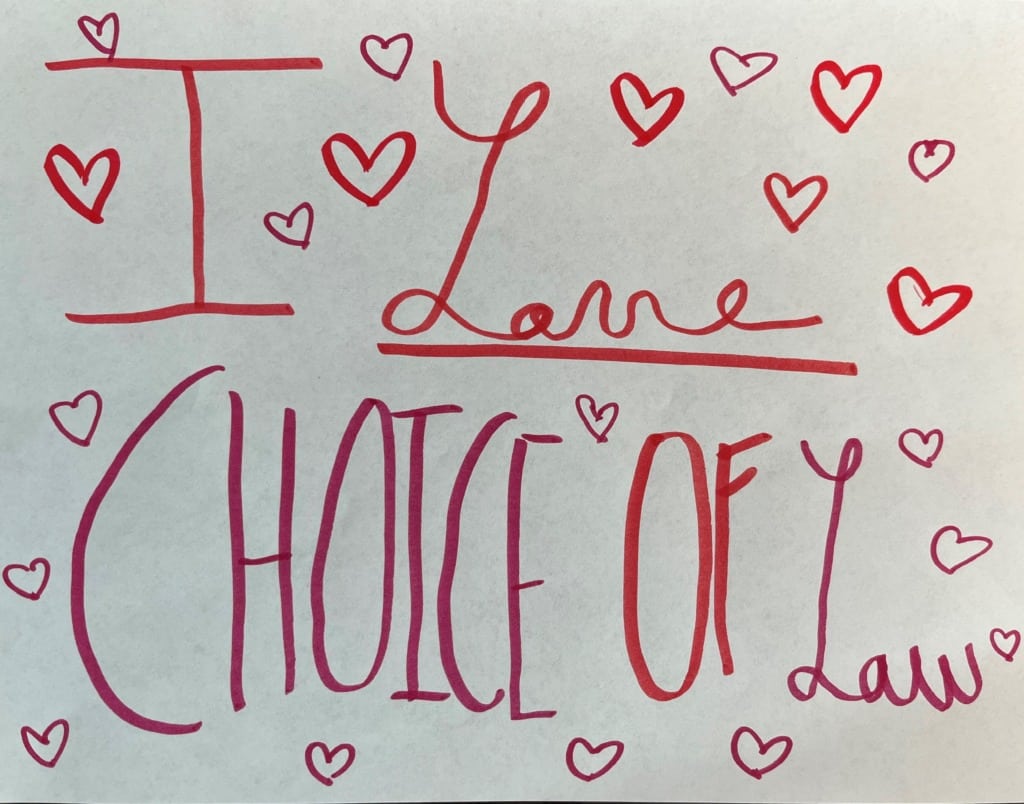Choice of Law in the American Courts in 2022
The thirty-sixth annual survey on choice of law in the American courts is now available on SSRN. The survey covers significant cases decided in 2022 on choice of law, party autonomy, extraterritoriality, international human rights, foreign sovereign immunity, foreign official immunity, the act of state doctrine, adjudicative jurisdiction, and the recognition and enforcement of foreign…
Continue ReadingFlorida Man Seeks Enforcement of Forum Selection Clause
One of the internet’s more enduring memes is that of Florida Man. Florida Man is famous for “performing irrational, maniacal, or absurd actions in the U.S. state of Florida.” Over the years, Florida Man has attacked his neighbor with a tractor, been trapped in an unlocked closet for two days, fed iguanas to alligators in…
Continue ReadingCISG Opt-Outs and Ascertaining Party Intent: A Back-to-Basics Perspective
Two of this year’s contributions to Transnational Litigation Blog have addressed the intellectually stimulating but also practically pressing issue of identifying when, and how, commercial parties can exclude the United Nations Convention on Contracts for the International Sale of Goods from their international sales agreements. In Professor John Coyle’s CISG Opt-Outs and Party Intent, Professor…
Continue ReadingThe PDVSA Bonds, Autocracy, and the Venezuelan Constitution
The Second Circuit’s recent decision in Petróleos de Venezuela S.A. v. MUFG Union Bank, N.A. certified a number of choice-of-law questions to the New York Court of Appeals. The decision to certify, which had the effect of postponing a definitive resolution of the dispute, was previously discussed at TLB here and here. In this post, I focus…
Continue ReadingZombie Choice-of-Law Clauses
When a contract is terminated, the provisions contained in that agreement generally cease to have any legal effect. Many U.S. courts have held, however, that contract provisions relating to dispute resolution continue to bind the parties even after the underlying contract ceases to be. In this post, I refer to such provisions as “zombie” clauses…
Continue ReadingMore on the Validity of the PDVSA 2020 Bonds
Governments with no realistic prospect of paying their debts often gamble for redemption, trying desperately to avoid default. Political leaders, with good reason, fear that a debt default will get them thrown out of office. But in trying to hold power, sometimes by borrowing even more, they often make matters worse for the country and…
Continue ReadingThe Billion-Dollar Choice-of-Law Question
Choice-of-law rules can be complex, confusing, and difficult to apply. Nevertheless, they are vitally important. The application of choice-of-law rules can turn a winning case into a losing case (and vice versa). A recent decision in the U.S. Court of Appeals for the Second Circuit, Petróleos de Venezuela S.A. v. MUFG Union Bank, N.A., is…
Continue ReadingNow or Then? The Temporal Aspects of Choice-of-Law Clauses
Several years ago, I published a paper that examined how U.S. courts interpret choice-of-law clauses. That paper contains a detailed discussion of the most common interpretive issues—whether the clause selects the tort laws of the chosen jurisdiction in addition to its contract laws, for example—that arise in litigation. There was, however, one important omission. The…
Continue ReadingContractual Waivers of Foreign Sovereign Immunity
The Foreign Sovereign Immunities Act (FSIA) provides that foreign states are immune from suit in the United States unless an exception applies. An important and long-standing exception to immunity is consent (the more common term in international practice) or waiver (the term used in the United States). The FSIA provides that a foreign state shall…
Continue ReadingThe Extraterritorial Application of State Wage and Hour Laws
Many U.S. states have enacted wage and hour laws. These laws generally set a minimum wage and require employers to pay overtime. When a company headquartered in one state hires an employee to perform work in a foreign country, however, it is not always clear which jurisdiction’s laws will apply. Is the payment of wages…
Continue Reading



